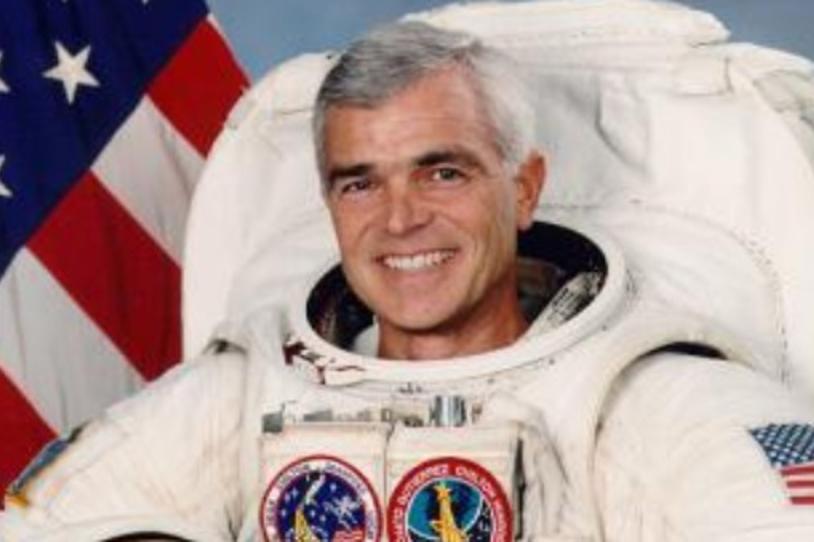
Traveling to space requires years of extensive training and immense physical and mental strength. For former NASA astronaut Michael Richard “Rich” Clifford, space travel also included an unexpected challenge — Parkinson’s disease.
In 1994, Rich had just completed his second space flight when he noticed his right arm wasn’t swinging. Months later, his racquetball game began to suffer. His decreased capability eventually led him to a neurologist who, after a series of evaluations, diagnosed Rich with Parkinson’s.
“Even before my diagnosis, you could tell something wasn’t right,” remembers Rich. “Looking back on footage of my second flight, you could see symptoms — my arm wasn’t swinging while I was up there.”
With an extensive career as a U.S. naval test pilot and two space flights under his belt, Rich was an experienced pilot and astronaut who NASA planned to send back into orbit within two years. The rate and effects of Parkinson’s progression over two years is different for everyone. Symptoms could worsen or new ones could arise, leading to risks and complications beyond those associated with space travel itself. NASA turned to Rich, asking what he wanted to do.
“Fly again,” he recalls. “I was still qualified; I wasn’t in pain, and I could handle it. So, I wanted to fly again.”
NASA had invested in Rich, trusted his judgment, and ultimately moved forward with his next flight. Rich anticipated questions from the media and concerned citizens if he disclosed his diagnosis, so only his flight director, crew and limited NASA staff knew of his Parkinson’s disease (PD).
On March 22, 1996, Rich Clifford launched into space for the third time. During his nine-day trip in orbit, his Parkinson’s didn’t present any problems. He even left the confines of the shuttle and conducted a six-hour spacewalk before returning safely back to earth.
The following year he left NASA to serve as a space station flight operations manager for Boeing Defense and Space Group.
Today, Rich is retired and spends most of his time traveling the country, sharing his story to inspire thousands. Rich joined the MJFF Patient Council in 2013, where he and fellow members advise the Foundation on patient needs and priorities.
“Everyone with PD handles it differently,” says Rich. “Don’t let it get in the way of living. Life is too good. Remember, keep going — the sky’s the limit.”
On March 14, the Reelabilities: NY Disabilities Film Festival being held at the Intrepid Sea, Air & Space Museum in New York City, will screen “An Astronaut’s Secret,” a documentary detailing Rich’s journey to sharing his diagnosis and his continued work to spread his message of encouragement. The film is directed by Zach Jankovic, son of MJFF Scientific Advisory Board member Joseph Jankovic, MD, through whom Zach met Rich.